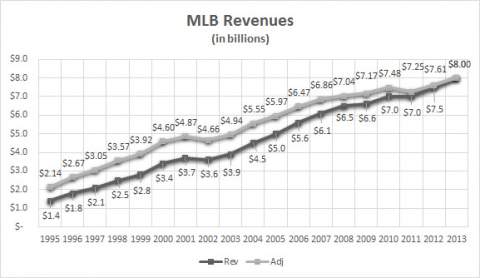to the shifting circumstances of Fortune, and how a successful leader needs to be malleable in order to, essentially, survive the down times in order to wait for the boom times during which he can make hay.
It probably doesn't seem like a great segue to the article above, but in my mind there's a link between the two pieces of writing. In MLB you've got a system that is absolutely killing it, performance-wise, and you're hesitant to make any changes because you don't want to screw things up. This, I think, is the same exact mechanism that saw essentially every great military leader in human history start off with a small, agile, INCREDIBLY effective fighting force that could easily defeat forces 5-10x his own force's size...but eventually he ends up at the head of a huge, lumbering war machine that seemingly has a mind of its own and isn't much better than 1:1 with opposing forces. You reach critical mass at some point, and when you do reach that point you need to just hang on as best you can while trying to keep the thing from running off the rails. You know that when you get a million men marching across the land, there's no real controlling anything except the direction they go, so you do your best to steer it away from the places you'd dearly like to remain standing.
So with something like baseball's reticence to improve itself seems, in my mind, fairly defensible as a wise strategic move. *BUT* ;-) Machiavelli, and others, also are quite clear to point out that there's more than one way to skin a given cat. Baseball, it seems, has never really suffered a downturn like many other major sports have suffered. The mid-90's strike and the Black Sox scandal have to be the low points, no? When those are in your top three worst moments in the sport's history, you're doing pretty darned good. There really isn't much reason to make drastic changes...but the Hallowed State of Things that baseball leadership seems so fond of, as you recognize in the article above, is indeed a big issue for me.


